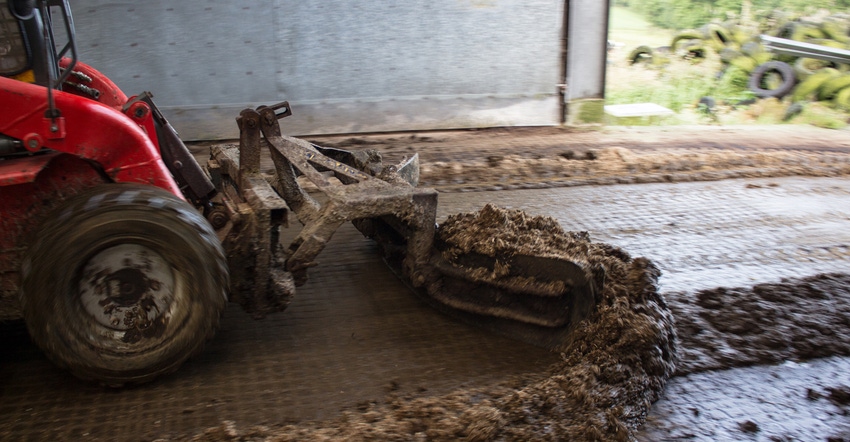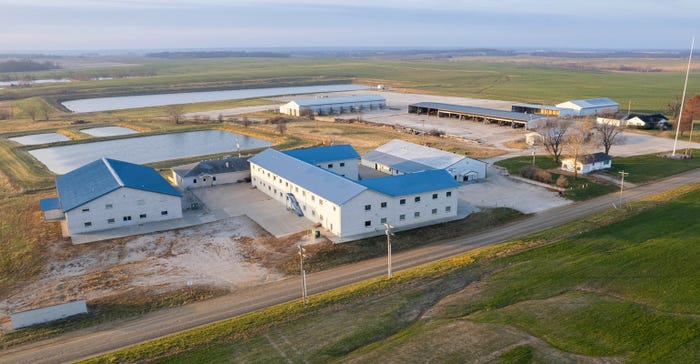
A new regenerative compost facility that uses dairy waste to produce biochar-infused, organic compost is coming to northeast Missouri.
Verde Resources, a wholly owned subsidiary of Verde Renewables, signed a lease-to-purchase agreement for a 24-acre property in La Belle, Mo. The more-than-$5.6 million Missouri site, which is a former processing and packaging facility, will begin operations in early 2022, creating more than 30 new jobs for the less-than-700 population rural community.
It will house the company’s catalytic Biofraction pyrolysis line, capable of processing 100 tons of organic biowaste per day into sources of renewable commodities such as regenerative compost — an organic soil blend of biochar, wood vinegar and biogas.
Biochar is part of regenerative agriculture practices because of its carbon-capturing properties. The company’s technology also aims to improve soil fertility while promoting higher crop yields.

EXPANSION SITE: Verde Resources selected the small northeast Missouri town of Labelle to place its Biofraction pyrolysis line that will process biowaste into regenerative compost.
Carl Craven, director of Verde Resources, said the company views the move as step toward being the “go-to green company in the Midwest.”
"We can make an immediate impact on the local farming industries, addressing several factors affecting the soil and environment,” he said in a news release. “Processing biochar and regenerative compost will tackle the dairy industry's waste issues while addressing the world's emissions problems.”
Leaders welcome business
Missouri Gov. Mike Parson said in a news release that the Seattle-based company’s expansion to Missouri is important to the agriculture industry and the rural economy.
“Our state is a leader in the growing agricultural technology sector, and we’re thrilled to see innovative companies like Verde Resources investing in Missouri,” Parson said. “This company’s expansion will enhance our critically important agriculture industry while creating quality jobs in our rural north region. Verde Resources is a welcome addition to a growing list of cutting-edge ag tech companies who see Missouri as a prime location for growth.”
Missouri Sen. Cindy O’Laughlin. who represents the area, said the project is “incredibly exciting” for the region. “I've seen some of the details, and I believe this innovative practice will reap both financial and environmental rewards for our farming communities,” she said in a news release.
Benefits to dairy
According to research in Nature Scientific Reports, pyrolysis is decomposing organic matter from 700 degrees F to 1,200 degrees F, without oxygen. It is different from typical incineration.
With this process, manure from dairy lagoons is transformed into a manageable, ecologically friendly biochar fertilizer, the report notes. The method benefits dairy farmers by giving them an option to stop storing waste in on-farm lagoons or spreading it only in nearby fields, but rather delivering it to plants, like Verde Resources, that use pyrolysis to create regenerative compost and biochar.
Verde Resources said its process offers a regenerative solution to mitigating the high quantities of harmful greenhouse gasses secreted into the atmosphere. Regenerative agriculture focuses on farming practices that manage topsoil to enhance ecosystem biodiversity, which focuses on improving the water, air and soil quality, while decreasing the impact of climate change.
Biochar is the latest product being looked at by the regenerative agriculture movement as a way to mitigate the effects of climate change by simultaneously capturing carbon and methane.
New incentives, such as carbon credits, available in exchange for the amount of carbon sequestered, may facilitate biochar being more commonly used as a farming practice.
The Missouri Department of Economic Development and Verde Resources contributed to this article.
About the Author(s)
You May Also Like






